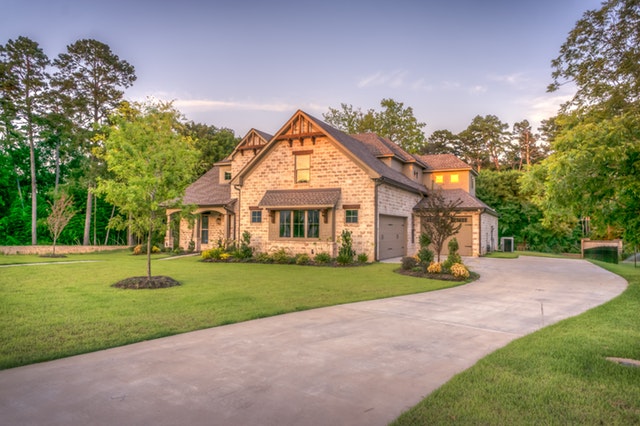One of the biggest decisions that you can make in your life is buying a house. After all, this will be the place where you spend so much of your time in the foreseeable future, the place to raise your family and the place where you will create so many memories. The first thing that you need to do is check the sums as a dream home can quickly become a lot less appealing when you are having to stretch your finances to breaking point to afford it.
Don’t forget that a home can’t be perfect for you unless it is in the right neighbourhood as well. What constitutes ‘right’ varies from person to person, but it mainly comes down to the facilities that are nearby, who your neighbours are, and the level of safety and security that you feel. In this blog post, we are going to be talking you through just a few of the other main points that you can consider when it comes to determining whether or not a house is the right one for you.
Avoid Choosing Solely Based on Square Footage
Sure, having plenty of room is an attractive proposition when you are buying a house, but you don’t want to get totally seduced by square footage. There are plenty of other factors that you need to take into account as well. A smaller house in an appealing neighbourhood may well be a much more attractive proposition to you. Essentially, you should think about how much space you actually need for your family (and any additions you have planned in the future). If there are rooms that will be going to waste, they simply aren’t worth paying for.
Seeking Perfection is Madness
No matter how hard you search, you are never going to be able to find a perfect property that ticks every single one of your boxes. Don’t think in terms of what is already there; think about what you will be able to do with the space in the future. Perhaps you could combine some rooms to create open-plan living, convert an attic or basement or even add an extension to the property in the future. Try writing out a list of the things that you are looking for a home and order it based on priority. If you find a place that ticks most of the boxes, try to make some compromises on the features that you don’t desperately need.
Focus on Floor Plan Rather Than Finishes
The finishes of a property such as tiling, paint and countertops are the things which can be easily changed in the future. So, if you are thinking about buying a place which currently seems very old-fashioned, try to see past this to see its potential. However, the floor plan is going to be a lot more challenging to alter without undertaking major work. Make sure that you are happy with the size and position of the kitchen, bathrooms, living area etc. It will take time for your house to feel like a home, but you can work on personalising it over time.
Give Yourself Plenty of Time to Search
If you rush your search for a property, you are much more likely to end up with a place that you are not entirely happy with. On the other hand, if you take a more relaxed approach and you are not satisfied with the selection that is available, you can wait until more properties appear on the market. And you also give yourself the chance to view multiple houses so you have the best idea of what you are looking for. However, if you do see a place that seems perfect, be prepared to move quickly to secure it ahead of your potential rivals.
Use the Internet as a Search Tool
The internet is an invaluable tool that allows you to view countless properties in a very short space of time. You could be viewing a country cottage one minute and a city townhouse the next. To start off with, there is no harm in searching as broadly as possible. Over time, you are likely to develop certain search criteria as you define exactly what you are looking for. Many estate agents now even give you the option to take virtual tours, so you can get a good general idea of a property before you see it in person.
Don’t Just See a Home as an Investment
Unless you are solely buying a property to add to your investment portfolio, your house is your home rather than a stock to sell. If you are not going to be happy living there, there is no point in buying the property in the first place. In the future, perhaps you will choose to sell, and housing has a tendency to go up in value no matter where you buy. Of course, you need to be logical about the home that you choose, but don’t underestimate the emotional pull involved in choosing a place to live.
Get the Neighborhood Right Too
As we talked about at the start, you are choosing a neighbourhood as much as you are choosing a house. So, when you are looking at potential properties, it is also worth investigating the area. Walk around on foot and see what sort of facilities are in the area including schools, restaurants, parks, cafes, and other entertainment options. Check out the transportation links, as well as how close you are to work, friends and family. Research the crime statistics and even speak to some neighbors if this is a possibility. Your quality of life will be influenced heavily by the neighborhood that you select, so don’t underestimate just how important this is.
Don’t Discount Your First Impression
A lot of estate agents will tell you that they can tell whether or not people are going to buy a property from the look in their eyes when they first step through the front door. Of course, you should look in more detail at a house, but don’t discount your first impression either. If you have that emotional attachment to a property in the first instance, this is usually a good sign as you can instantly envisage yourself living there.
Include All New Features and Repair Work in Your Costings
The bottom line figure of a property is not the end of your outgoings. You also need furniture to fill all of those rooms to turn it into a home. If there is any essential repair work which can’t wait, you will also need to complete all of this. And then there are the moving fees to take into account as well. Nobody ever said that buying a new house was going to be cheap!
Explain Non-Negotiables to Your Estate Agent
Earlier in the article, we talked about writing out a list of your priorities when it comes to what you are looking for in your home. Rather than keeping this all to yourself, you could share it with your estate agent as they will be playing a major role in helping you find the place of your dreams. When they better understand your priorities, they will be able to choose places to show you that fit in with these.
Remember You Are Buying a Lifestyle And An Address
No matter how beautiful a house appears to be, if it doesn’t fit in with your lifestyle, it is not going to make you happy in the long-run. For example, if you love getting out in the great outdoors, a city centre apartment is unlikely to be for you. Similarly, if you love cooking, a house with a tiny kitchen simply isn’t going to cut the mustard. Your address should be secondary to the opportunities that are presented to you by your house.
And there you have some of the main points to consider when you are buying a house and trying to decide whether or not a property is right for you. Go in with certain expectations, but also accept that you are highly unlikely to find a place that ticks all the boxes. Don’t solely focus on what the property looks like at the moment, but rather imagine what you could do with it in the future. Include all the essential work that needs doing in your costings. As we have mentioned a couple of times, you are also investing in your neighborhood and not just the house itself. If possible, give yourself plenty of time to conduct your search as you are much more likely to find a place that suits all your needs this way. Use the internet as a tool to aid you in your search to help you refine what you are looking for. And enjoy the search – because it’s about finding the place where you’ll likely spend the rest of your life!
Related Posts
- Selling Your Home - What To Know & What To Do
The process of selling your home is an interesting one. Not only is it a…
- 6 Ways To Make Your Home Appealing To Potential Home Buyers
When you decide to sell your house, it can be a challenge to find a…
- 2 Steps To A More Beautiful Home
Your home deserves the very best. Simple. But not because you want to wow and…



















